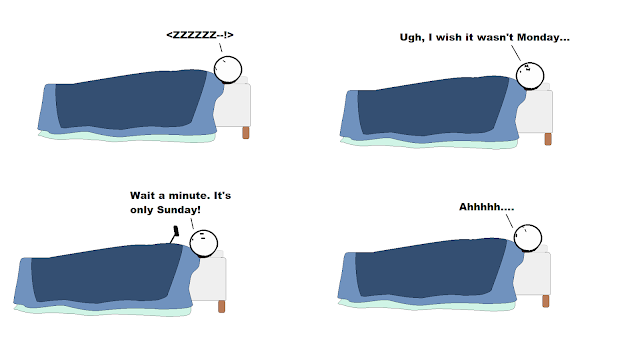Last part of words from the Proto Indo European eue-,
to leave, abandon, or give out, which gave us vacation, vacate, and somehow
want.
This week, we’ll start by looking at void. It showed up in the
fourteenth century meaning vacant before
also meaning to legally void in the mid fifteenth century. It comes from the Anglo French/Old French voide/viude, and before that the classical Latin vocivos,
vacant, which is from vacare, the origin word of vacate and a bunch of
these other words.
Plus there’s also devoid, which weirdly kind of means the same thing as
void. It showed up in the fifteenth century,
though the word devoided actually existed before that and had the same meaning.
It comes from the Middle English devoiden, from the Old French desvidier,
with the des- from dis- and meaning away, and the rest from voide. Devoid is to empty away.
Avoid showed up in the late fourteenth century as what we know it as, though before that in Middle English it used to mean to
empty out. That’s from the Anglo French avoider, from the Old French esvuidier,
with the es- actually from ex-, meaning out,
and the rest is also from voide. So it means to empty out, and we just changed
it to mean staying away from something.
Next there’s devastate, though that actually came in the mid sixteenth century while devastation showed up
a whole century earlier. It comes
from the Medieval Latin devastationem, from the classical
Latin verb devastare, which is just to devastate.
The de- means completely here, while vastare
means to waste,
so devastate is to completely waste! And vastare is from the Proto Indo
European wasto-, of course from eue-. How sensible! And speaking of waste, it’s pretty old, having shown up in the
thirteenth century from the Anglo
French/Old North French waster, which just so happens to also
be from vastare. Waste and devastate are one and the same.
The final word we’re going to look at from eue- is… vaunt. Yes, vaunt,
like boasting about something, because boasting is kind of, well, vain. It
showed up in the early fifteenth century from the Anglo French vaunter, Old French vanter, Medieval Latin vanitare,
and finally the classical Latin vanare, which means something like to say in vain.
That happens to be from vanus, the origin word for vain,
from the PIE wano-, which is from eue-. Because vaunting is vain.
Sources
Online Etymology Dictionary
Google Translate
Omniglot
University of Texas at Austin Linguistic Research Center
University of Texas at San Antonio’s page on Proto Indo European language
University of Texas at Arlington
Dictionary of Medieval Latin
Fordham University
Online Etymology Dictionary
Google Translate
Omniglot
University of Texas at Austin Linguistic Research Center
University of Texas at San Antonio’s page on Proto Indo European language
University of Texas at Arlington
Dictionary of Medieval Latin
Fordham University






